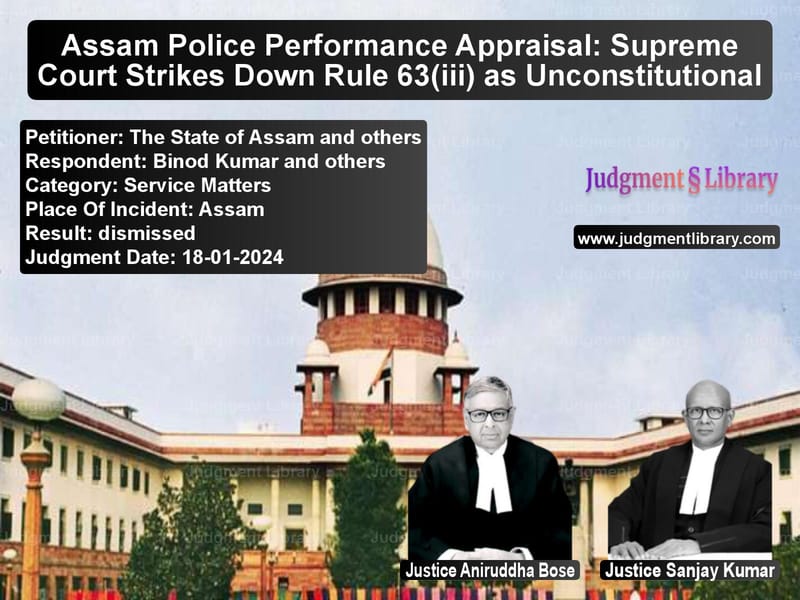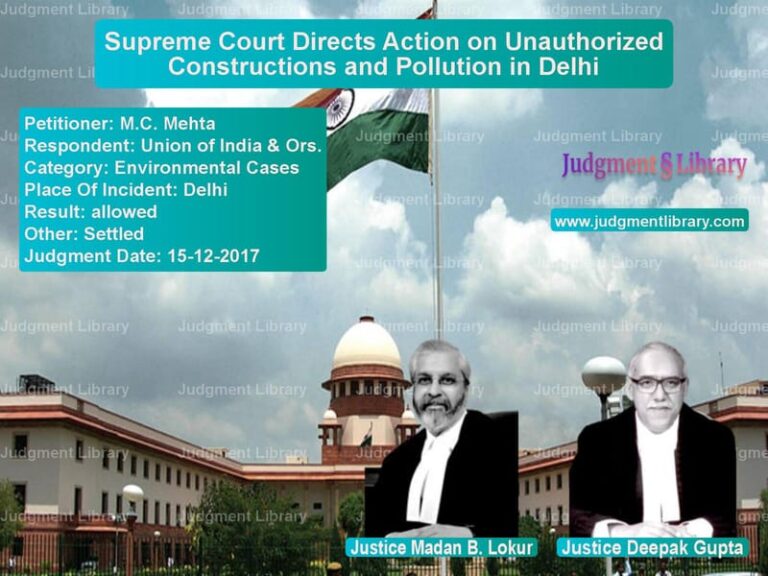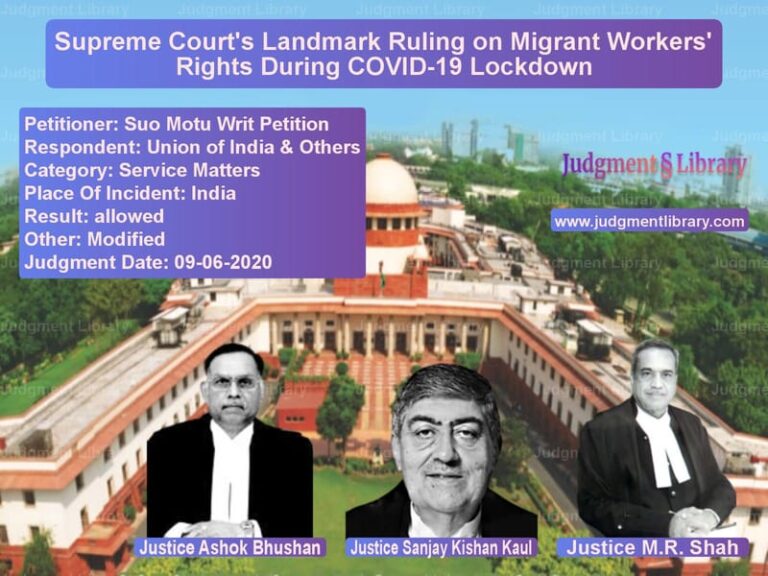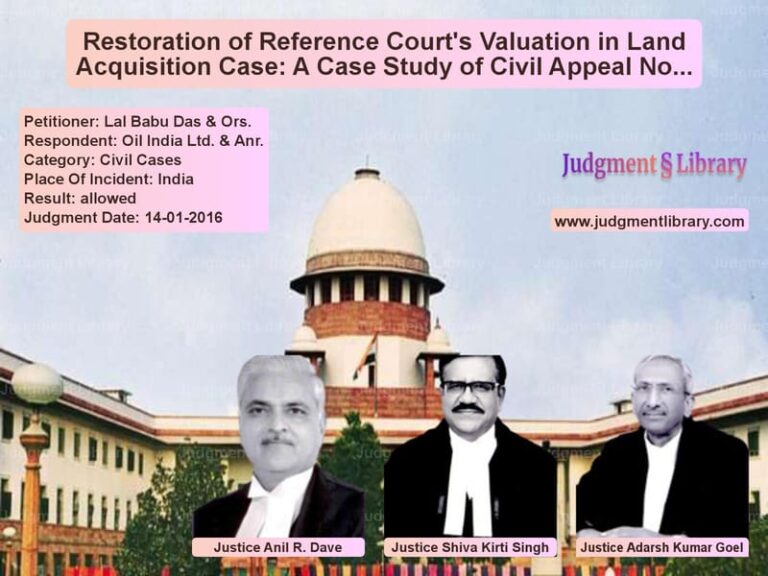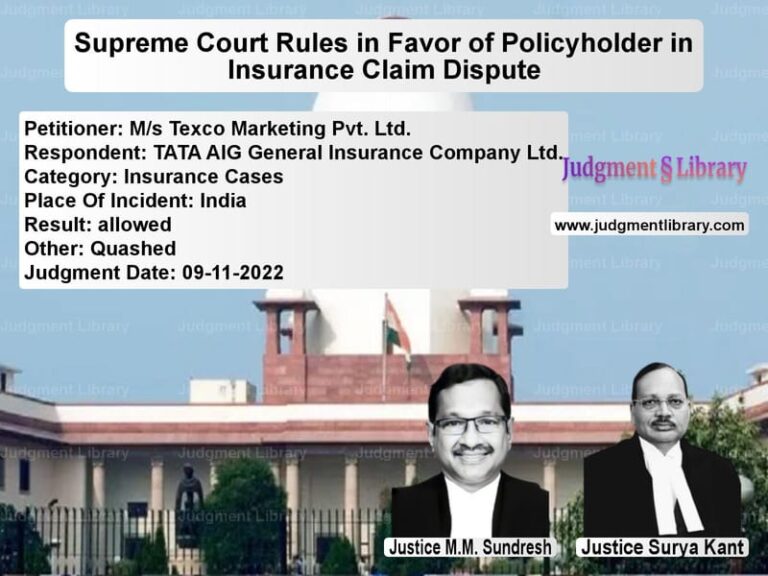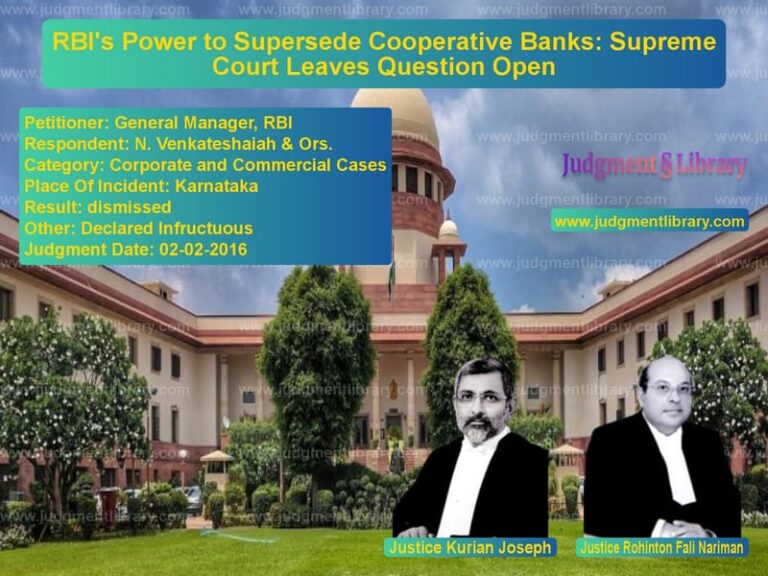Assam Police Performance Appraisal: Supreme Court Strikes Down Rule 63(iii) as Unconstitutional
The Supreme Court of India, in its judgment dated 18 January 2024, ruled on a crucial issue concerning the appraisal system for Indian Police Service (IPS) officers in Assam. The case, The State of Assam & Ors. vs. Binod Kumar & Ors., revolved around the validity of Rule 63(iii) of the Assam Police Manual, which designated the Deputy Commissioner as the Reporting Authority for the Annual Confidential Reports (ACRs) and Annual Performance Appraisal Reports (APARs) of IPS officers working as District Superintendents of Police (SPs).
The key question before the Court was whether this rule conflicted with Section 14(2) of the Assam Police Act, 2007, which limits the authority of the Deputy Commissioner over the internal discipline and organization of the police force.
Background of the Case
The dispute began when IPS officers challenged Rule 63(iii), arguing that it:
- Allowed a civil officer, the Deputy Commissioner, to assess the performance of police officers, violating the structure of police administration.
- Contravened Section 14(2) of the Assam Police Act, 2007, which bars the Deputy Commissioner from interfering in internal police matters.
- Was inconsistent with the All India Services (Performance Appraisal Report) Rules, 2007, which require that performance assessments be conducted by superior officers within the same service.
On 5 December 2017, the Gauhati High Court ruled in favor of the IPS officers and struck down Rule 63(iii), leading the State of Assam to appeal to the Supreme Court.
Petitioner’s Arguments (State of Assam)
The State of Assam defended Rule 63(iii) by arguing:
- The Deputy Commissioner supervises police operations related to law and order and is therefore in the best position to assess the SP’s performance.
- The All India Services Rules allow flexibility in choosing the Reporting Authority.
- The rule had been in place since colonial times and served as an essential check on police accountability.
Respondent’s Arguments (IPS Officers)
The IPS officers, led by Binod Kumar, argued:
- Rule 63(iii) was outdated and unconstitutional, as it was based on the repealed Police Act of 1861.
- Under the 2007 Assam Police Act, the SP is independent in policing matters, and the Deputy Commissioner cannot interfere in police discipline.
- Allowing a civil servant to assess an IPS officer creates a conflict of interest and undermines police autonomy.
- The All India Services (Performance Appraisal Report) Rules, 2007 mandate that a Reporting Authority must be a superior officer within the same service.
Supreme Court’s Judgment
The Supreme Court, comprising Justice Aniruddha Bose and Justice Sanjay Kumar, upheld the High Court’s ruling and struck down Rule 63(iii).
Key observations:
- Rule 63(iii) violates Section 14(2) of the Assam Police Act, 2007, which restricts the Deputy Commissioner’s authority over internal police matters.
- IPS officers belong to an All India Service, and their performance appraisals must align with the All India Services (Performance Appraisal Report) Rules, 2007.
- Performance assessment must be conducted by an officer within the same service, ensuring consistency across India.
- The Deputy Commissioner lacks expertise in evaluating police work beyond law and order duties.
- Using a civil officer to assess an SP could lead to bias and conflicts of interest.
Consequently, the Court ruled that:
- Rule 63(iii) is unconstitutional and invalid.
- Performance appraisals of SPs in Assam must follow the 2007 All India Services Rules.
Impact of the Judgment
This ruling has significant implications for police administration in India:
- Strengthens police autonomy: Ensures that IPS officers are assessed by police superiors, not civil officers.
- Creates uniformity: Brings Assam’s police appraisal process in line with national standards.
- Enhances fairness: Eliminates potential conflicts of interest arising from the Deputy Commissioner’s involvement.
Conclusion
The Supreme Court’s judgment in The State of Assam & Ors. vs. Binod Kumar & Ors. reaffirms the principle that police officers must be assessed within their own hierarchy. By striking down Rule 63(iii), the Court has upheld the autonomy of the police force and ensured that performance appraisals remain objective, fair, and in line with national regulations.
Petitioner Name: The State of Assam and others.Respondent Name: Binod Kumar and others.Judgment By: Justice Aniruddha Bose, Justice Sanjay Kumar.Place Of Incident: Assam.Judgment Date: 18-01-2024.
Don’t miss out on the full details! Download the complete judgment in PDF format below and gain valuable insights instantly!
Download Judgment: the-state-of-assam-a-vs-binod-kumar-and-othe-supreme-court-of-india-judgment-dated-18-01-2024.pdf
Directly Download Judgment: Directly download this Judgment
See all petitions in Public Sector Employees
See all petitions in Employment Disputes
See all petitions in Recruitment Policies
See all petitions in Termination Cases
See all petitions in Disciplinary Proceedings
See all petitions in Judgment by Aniruddha Bose
See all petitions in Judgment by Sanjay Kumar
See all petitions in dismissed
See all petitions in supreme court of India judgments January 2024
See all petitions in 2024 judgments
See all posts in Service Matters Category
See all allowed petitions in Service Matters Category
See all Dismissed petitions in Service Matters Category
See all partially allowed petitions in Service Matters Category

